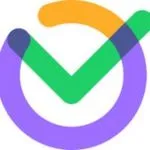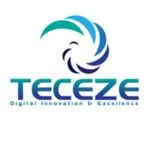
Top Travel Planner App Development Companies
Welcome to our curated list of the top Travel Planner App Development Companies! Planning your next adventure has never been easier with our comprehensive guide, showcasing the best firms in the industry. We understand the importance of selecting the right partner to bring your travel app idea to life, which is why we’ve compiled this list based on user reviews. From itinerary planning to booking accommodations and exploring local attractions, these companies excel in developing innovative and user-friendly travel planner apps. Explore our list to make informed decisions and choose the perfect partner for your travel app project.
List of the Best Travel Planner App Development Companies

-
Employees: 1000+
-
Min. Project amount: $1,000+
-
Country: New Delhi, India

Luvina Software JSC
-
Employees: 501 to 1000
-
Min. Project amount: $5,000+
-
Country: Cau Giay, Vietnam

MediaNV
-
Employees: 51 to 100
-
Min. Project amount: $1,000+
-
Country: Calgary, Canada

Nest Software Private Ltd
-
Employees: 11 to 50
-
Min. Project amount: $1,000+
-
Country: Amritsar, India

Globus Finanza
-
Employees: 11 to 50
-
Min. Project amount: $1,000+
-
Country: Delaware, United States

Kuchoriya TechSoft
-
Employees: 101-250
-
Min. Project amount: $1,000+
-
Country: Mississauga, Canada

Cognitive IT Solutions
-
Employees: 11 to 50
-
Min. Project amount: $1,000+
-
Country: Karachi, Pakistan

MaxelTracker
-
Employees: 51 to 200
-
Country: Canada

Teceze
-
Employees: 251 to 500
-
Min. Project amount: $1,000+
-
Country: London, England

Superior Metal Work
-
Employees: 50 to 249
-
Min. Project amount: 50 to 249
-
Country: Newbern, AL
** Buyer's Guide **
- 1. What features should I look for in a travel planner app developed by a company?
- 2. How important is user experience (UX) and design in a travel planner app?
- 3. Can the app be customized to cater to specific travel preferences and needs?
- 4. What is the typical development process for a travel planner app, and how long does it take?
1.What features should I look for in a travel planner app developed by a company?
When evaluating travel planner app development companies, consider features such as itinerary planning, flight and hotel booking integration, real-time navigation and maps, destination recommendations, weather forecasts, budget tracking, and social sharing capabilities.
When choosing a travel planner app development company, look for features that go beyond basic functionalities. Here are some key features to consider:
Comprehensive Itinerary Planning:
Allow users to create detailed itineraries for their trips, including:
- Adding destinations, activities, and transportation arrangements
- Scheduling events and setting travel times
- Creating different versions for flexibility
Integration with booking platforms: Seamlessly connect to booking platforms for flights, hotels, tours, and other travel essentials directly within the app, eliminating the need to switch between multiple apps.
Offline access: Allow users to access their itineraries even without an internet connection, ensuring they have their travel plans readily available during their trip.
Real-Time Navigation and Maps:
Integrate with mapping services to provide users with:
- Turn-by-turn navigation for walking, cycling, or driving directions
- Real-time traffic updates to help users avoid delays
- Offline map functionality for navigating without an internet connection
Augmented Reality (AR) features (optional): Cutting-edge companies might incorporate AR features to overlay information about points of interest on a live camera feed, helping users explore their surroundings more effectively.
Destination Recommendations and Inspiration:
- Go beyond just booking. The app should provide users with travel inspiration and recommendations based on their preferences, including:
- Curated lists of must-see attractions, hidden gems, and off-the-beaten-path experiences
- Personalized suggestions based on user interests (e.g., history, food, outdoor activities)
- Integration with travel blogs, reviews, and local expert recommendations
Weather Forecasts and Packing Assistance:
- Keep users informed with up-to-date weather forecasts for their destinations, allowing them to pack accordingly.
- Some apps might offer packing suggestions based on weather forecasts and planned activities.
Budget Tracking and Management:
- Help users stay on budget with features like:
- Categorizing travel expenses (e.g., accommodation, transportation, food)
- Setting spending limits and tracking expenditures throughout the trip
- Integrating with budgeting apps or allowing users to connect their credit cards for automatic expense tracking
Social Sharing and Collaboration:
- Allow users to share their travel plans with friends and family on social media or collaborate on itineraries with fellow travelers.
- Real-time updates within shared itineraries can help groups stay coordinated throughout their trip.
Additional features to consider:
- Multilingual Support: Cater to a global audience by offering the app in multiple languages.
- Currency Converter: Help users manage costs with an integrated currency converter.
- Local Phrasebook: Provide basic phrases in the local language for easier communication at the destination.
- Emergency Contact Information: Offer a list of emergency contact information for embassies, hospitals, and local authorities.
By prioritizing these features, you can choose a travel planner app development company that creates an app that empowers users to plan their trips effectively, navigate unfamiliar destinations with ease, and make the most of their travel experiences. Remember, the specific features you prioritize will depend on your target audience and the unique value proposition of your app.
2.How important is user experience (UX) and design in a travel planner app?
User experience and design play a crucial role in the success of a travel planner app. A well-designed and intuitive interface enhances user engagement, encourages exploration, and makes the app enjoyable to use, ultimately leading to higher user retention and satisfaction.
User experience (UX) and design are fundamental to the success of a travel planner app. Imagine trying to plan a dream vacation through a clunky, confusing app. Not exactly inspiring, right? Here’s why UX and design are so important:
Boosting User Engagement and Retention:
Intuitive Interface: A user-friendly interface with clear navigation, easily identifiable icons, and a logical layout allows users to find what they need quickly and efficiently. This reduces frustration and keeps users engaged in planning their trips.
Visually Appealing Design: An app with a clean, modern aesthetic and high-quality visuals (e.g., captivating destination photos) encourages exploration and creates a positive first impression. An attractive app is more likely to keep users coming back for future travel planning needs.
Seamless User Flow: The app should guide users through the planning process intuitively, avoiding unnecessary steps or confusing actions. This keeps users focused on planning their trip and reduces the chances of them abandoning the app in frustration.
Empowering Informed Decisions:
Clear Information Architecture: Travel planning involves making numerous decisions. The app should present information about destinations, activities, and logistics in a clear and concise way. This empowers users to make informed choices and feel confident about their travel plans.
Personalization Options: Allowing users to personalize their experience (e.g., setting preferences for travel style, budget, or interests) makes the app feel more relevant and engaging. Personalized recommendations and suggestions can further enhance the user experience.
Accessibility Features: Ensuring the app is accessible for users with disabilities through features like screen reader compatibility and increased font sizes demonstrates inclusivity and caters to a wider audience.
Overall User Satisfaction:
Reduced Stress and Anxiety: A well-designed app can streamline the often-stressful travel planning process. By simplifying tasks and providing users with a sense of control, the app can contribute to a more positive travel planning experience.
Increased User Satisfaction: A user who finds the app enjoyable and helpful to use is more likely to be satisfied with the overall experience. This translates to positive reviews, recommendations to others, and potentially repeat use for future trips.
Competitive Advantage:
In a crowded travel app market, a well-designed and user-friendly app can differentiate itself from the competition. Users are more likely to choose an app that is not only functional but also enjoyable and visually appealing to use.
By prioritizing UX and design, you can create a travel planner app that not only helps users plan their trips but also fosters excitement and a sense of adventure, ultimately leading to a successful and user-friendly travel companion app.
3.Can the app be customized to cater to specific travel preferences and needs?
Yes, reputable travel planner app development companies will offer customization options to tailor the app to your unique requirements. Whether you’re a solo traveler, family, or group, the app can be customized to accommodate different travel styles, preferences, and needs.
Customization is a key feature for a successful travel planner app. A one-size-fits-all approach just doesn’t work when it comes to travel. Here’s how reputable development companies can create an app that caters to diverse travel preferences and needs:
Accommodating Different Traveler Types:
Solo Travelers: The app can offer features like safety recommendations, hostel recommendations, and social features to connect with fellow solo travelers.
Families: Family-friendly features might include child-friendly activity suggestions, itinerary planning tools for multiple people, and resources for finding family-oriented accommodations.
Group Travel: Apps can offer collaborative planning features, shared budgets, and communication tools to streamline group trip planning for multiple people.
Personalization Based on Preferences:
Travel Style: Allow users to set preferences for travel style (e.g., luxury, adventure, budget-friendly) to receive personalized recommendations and suggestions.
Interests and Activities: The app can tailor suggestions based on user interests (e.g., history, food, outdoor activities) to create itineraries that align with their travel goals.
Accessibility Needs: For users with disabilities, the app can offer accessibility features and integrate with resources for accessible travel options.
Customization Options:
Flexible Itinerary Planning: Allow users to create structured itineraries or more free-flowing plans depending on their preferences.
Budget Management: Enable users to set custom budgets for different categories (e.g., accommodation, transportation, food) and track expenses throughout their trip.
Offline Functionality: The app should allow users to customize what information and features are available offline to ensure they have essential details readily accessible even without an internet connection.
Advanced Customization (Optional):
AI-Powered Recommendations: Cutting-edge apps might use AI to recommend destinations, activities, and hidden gems based on a user’s past travel behavior and preferences.
Integration with Wearable Devices: For tech-savvy travelers, the app might integrate with wearable devices like smartwatches to display itineraries, navigation directions, or travel alerts on the go.
By incorporating these customization options, a travel planner app can cater to a wider audience and provide a more personalized and engaging experience for each user. This can lead to increased user satisfaction, loyalty, and a competitive advantage in the travel app market.
4.What is the typical development process for a travel planner app, and how long does it take?
The development process for a travel planner app typically involves phases such as planning, design, development, testing, and deployment. The duration of the development process depends on various factors such as the complexity of features, platform (iOS, Android, web), and integration with third-party services, but it usually ranges from a few months to a year.
Developing a travel planner app involves a series of steps to ensure a functional, user-friendly, and successful product. Here’s a breakdown of the typical development process:
1. Planning and Requirement Gathering:
- Understanding Your Vision: This initial phase involves in-depth discussions with you to understand your vision for the app, target audience, and the unique features you want to incorporate.
- Competitor Analysis: The development company might conduct competitor analysis to assess existing travel planner apps, identify strengths and weaknesses, and ensure your app offers a differentiated user experience.
- Defining Features and Functionality: Through workshops or brainstorming sessions, you’ll collaborate with the development team to prioritize features, define functionalities, and create a clear roadmap for the app’s development.
2. Design and Prototyping:
User Interface (UI) and User Experience (UX) Design: The development team translates your vision and user needs into a user-friendly and visually appealing app design. They’ll focus on intuitive navigation, clear information architecture, and a positive user experience.
Wireframing and Prototyping: Creating low-fidelity or clickable prototypes allows you to visualize the app’s layout, user flow, and core functionalities. This is a great opportunity to provide feedback and iterate on the design before extensive development begins.
3. Development and Integration:
Coding and Development: The development team brings the app to life using programming languages and frameworks suited for mobile app development (e.g., Swift for iOS, Kotlin for Android).
API Integration: Travel planner apps often integrate with various third-party APIs for functionalities like flight and hotel booking, maps and navigation, weather data, and more. The development team will ensure seamless integration with these services.
4. Testing and Quality Assurance:
Rigorous Testing: The app undergoes rigorous testing phases to identify and fix bugs, ensure smooth functionality across different devices and operating systems, and guarantee optimal performance.
User Testing: Involving potential users in the testing process allows for valuable feedback on the app’s usability, intuitiveness, and overall user experience.
5. Deployment and Launch:
App Store Optimization: The development company can help optimize your app store listing with relevant keywords and descriptions to increase discoverability within app stores (e.g., Apple App Store, Google Play Store).
App Launch and Marketing: The app is finally launched on the targeted app stores. However, the work doesn’t stop there. A good development company might collaborate with you on marketing strategies to promote the app and reach your target audience.
Development Timeline:
The timeframe for developing a travel planner app can vary depending on several factors:
Complexity of Features: Apps with basic functionalities will take less time to develop compared to apps with complex features like AI-powered recommendations or wearable device integration.
Platform Development (Native vs. Cross-Platform): Developing native apps for iOS and Android separately takes longer than using a cross-platform development framework. However, native apps often offer better performance and user experience.
Third-Party Integrations: The number and complexity of third-party API integrations can influence the development timeline.
Here’s a general range to consider:
Basic Travel Planner App (3-6 Months): This might include features like itinerary planning, basic search functionalities for destinations and activities, and offline access to saved information.
Standard Travel Planner App (6-12 Months): This range covers apps with more features like booking integrations, real-time navigation, weather forecasts, and basic budget tracking tools.
Advanced Travel Planner App (Over 1 Year): Highly complex apps with features like AI-powered recommendations, AR functionalities, or wearable device integration would require a longer development timeline.
By working closely with a reputable development company and clearly defining your project scope, you can ensure a smooth development process and create a travel planner app that meets your vision and timeline. Remember, the development timeline is just an estimate. The best development companies will provide you with a more accurate timeline based on your specific app requirements.



